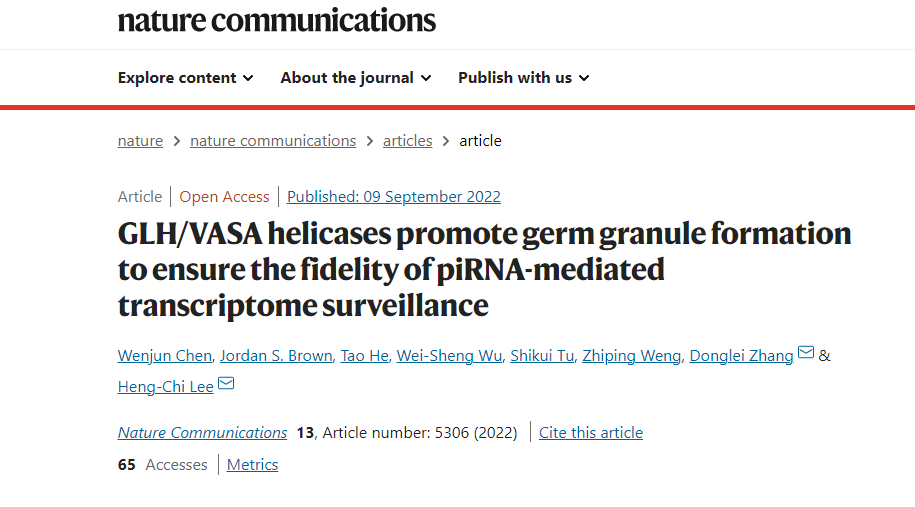
On September 9, 2022, Nature Communications published online GLH/VASA helicases promote germ granule formation to ensure the fidelity of piRNA-mediated transcriptome surveillance that is jointly completed by Donglei Zhang's team at the School of Basic Medicine and Heng-Chi Lee's team at the University of Chicago.
Their study found that GLH/VASA helicase mutants exhibit defects in forming perinuclear condensates containing PIWI and other small RNA cofactors. These mutant animals produce largely normal levels of piRNA but are defective in triggering piRNA silencing. Strikingly, while many piRNA targets are activated in GLH mutants, hundreds of endogenous genes are aberrantly silenced by piRNAs. This defect in self versus non-self recognition is also observed in other mutants where peri-nuclear germ granules are disrupted. Together, the results argue that perinuclear germ granules function critically to promote the fidelity of piRNA-based transcriptome surveillance in C. elegans and preserve self versus non-self distinction.
Professor Donglei Zhang is the co-corresponding author of this paper and his team member Tao HE is the coauthor. This work was supported by the National Natural Science Foundation of China.